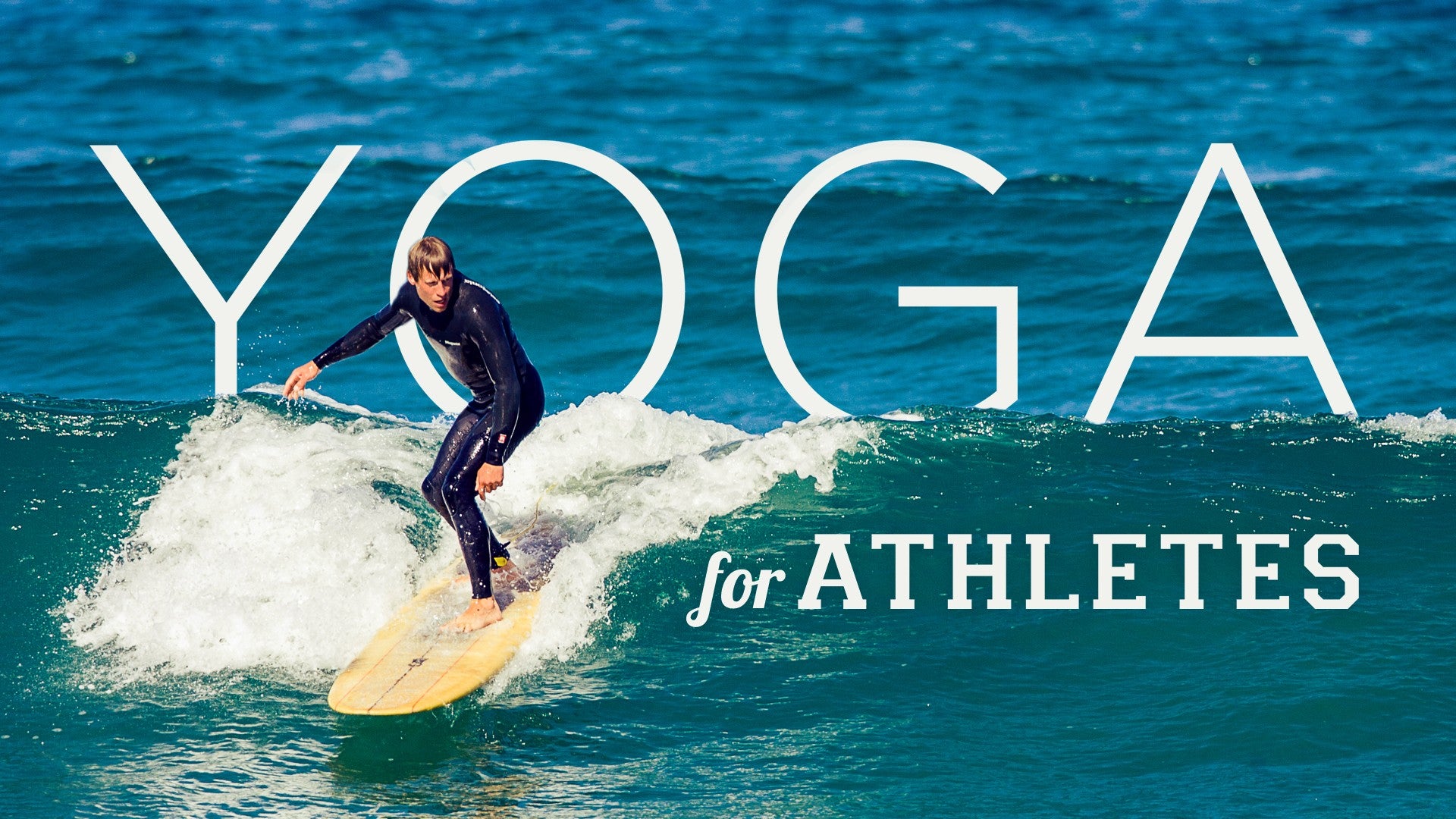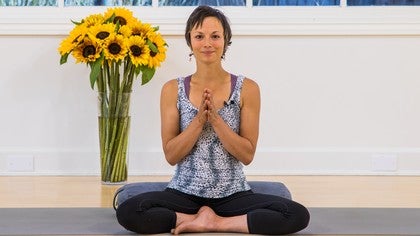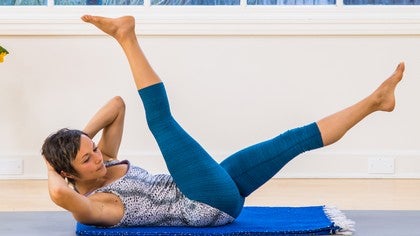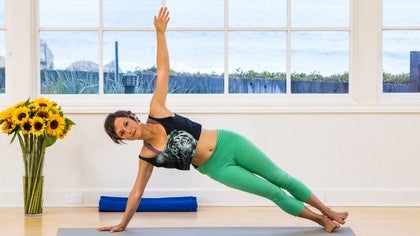Description
About This Video
Transcript
Read Full Transcript
(waves crashing) Welcome. So listening to injury, this is the topic that we'll dive into a little bit. As an athlete, or someone who's a real body mover, and that holds space for them and is a source of so much happiness, I think it's particularly challenging to go through a time when you're injured and not able to do those things that you love. And I can speak from personal experience that it's really challenging, but also there are so many up sides to being with injury, cause as we all know, it can be a really fruitful time for learning about ourselves and resting. So, in athletics, and in any type of body practice where you're maybe trying to get stronger, or more efficient at something, rest is where you gain all of that strength.
My partner is a professional athlete, and he just happens to be the best rest-er that I know. So, I've learned a lot from him, and also some of my friends that are professional athletes, for example my friend Tommy Caldwell, he'll do a big push where he's super physical for maybe three or four days, but then it'll take him three weeks of rest to come back to where he was before, and to feel stronger, give or take a big chunk of time. So, sometimes injuries can be really a wonderful time to have forced rest, and in that time for me one of the tools that I use, many tools that I use comes from the yoga practice. Surprise. (giggling) Because, no matter what the state of your body, no matter what your injury is, you can always find a practice. A mindfulness practice, a grieving practice, a restorative practice with props, where you can nurture the injury, and breathe into it and send healing there, and just rest, just take that time to not be in productive time, although you're really being productive by resting.
One of the things that supported me in injury prevention in the last seven years has been following kind of a 70% effort philosophy that's a Daoist practice, and this is personal to me, maybe it resonates with you, but in the activities that I'm doing, I'll ascertain where my 100% is, where my 110%, cause sometimes the most beautiful thing is to give it your all. And then I'll kind of pull back and do more of a 70% effort, so that there's always reserves. I'm always left feeling energized, and there's always reserved, and if I stay at that 70% I kind of gradually see improvement, see more strength coming, see more efficiency coming. And then also going back to that 100%, and seeing if it's changed, and where it is. And everyone has different philosophies on how to deal with this.
Another thing that I wanted to touch on is, deep rest is so important for injury, but also moving the tissue that's injured a little bit, because our fascial system, so, all of the connective tissue that binds our muscles, and our organs and our bones, it kind of shrink wraps to the position that you hold the most. So if you're, sometimes you can't help but be in one position with a break or something really serious like that, but if it's a soft tissue injury, and there you can move it, then freezing around the area, is not really useful, so like active resting, kind of exploring ranges of motion, and keeping movement in injured areas can help the fascial tissue stay soft and open. Of course not going into a lot of pain, but exploring moving the injured areas even if it's a little bit scary to do that. One other thing is that injury can be a really beautiful time to really listen to your body. So often we're really in our mind, in our thoughts, and often it's mind over body when we're doing a lot of athletic things, when we're pursuing athletic goals, because we're telling our body to do certain things, we're asking our body to comply with certain goals that we have, and sometimes we can be so much in our hearts and our emotions that we are also not in the body, so when we're injured we can really listen to the body, and that's a deep, that can be a really deep mindfulness practice, and also mindfulness practice can support listening to the body, because if there is no pause in between thoughts, if there's no space within the mind, then we can get wrapped up in large systems of thoughts about the injury and we can even be in denial of the injury, and that happens often, I sense, that it's not really happening, and then we can push ourselves and drive that injury deeper into our tissue, and not recover quickly.
So, just having a mindfulness practice where you can deeply listen to, you can do something and then pause, listen, was that useful, was that supportive, will that promote healing for that area? And mediation is just a wonderful place to start having the opportunity to pause, to listen to the body. And maybe even a body scan practice, or something like we do in this series, a deep rest session, to just really go into being aware of the body's needs. And it's interesting to say "the body" sometimes, not my body, because if we say "my body," then maybe we treat the body in a different way than if "the body" was just part of nature, part of the wild, and you could respect it, potentially in a different way, then just owning it, and driving it forward, whatever that means. Just an idea.
So, why don't we sit for a couple of moments and just really listen to what's happening. So, find a comfortable seat. Sit up enough that you're knees are a little bit below your hips. Slide your hands back on your thighs. Drop your chin a couple of degrees.
And close your eyes. And with your eyes closed, enter in to the body, the breath, sensation. Also, what you're hearing, sound. The physical experience of hearing. Maybe you can locate an area in your body that has been injured, or that is injured now, or that feels a little bit weak.
And linger there. Maybe you're having some ideas of how you heal, how you know how to heal. Make it your own process. Take a few deep breaths into the space that you're concentrating on being with, holding space for. And when you're ready, letting your eyes open.
A nice soft gaze. And thank you so much for listening, and being with me here today. Namaste.






You need to be a subscriber to post a comment.
Please Log In or Create an Account to start your free trial.